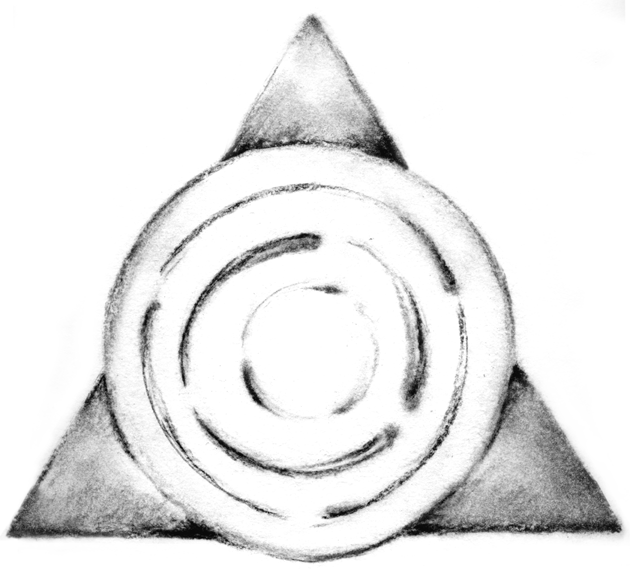In a world where our education seeks to prepare us for the production/consumption society, we learn how to make choices at the supermarket and in the holiday brochures. Unfortunately, we receive no education regarding how to choose and change our beliefs and our feelings. No one shows us how our thoughts and feelings are rooted in our beliefs and that there are more enlightened choices that can transform our lives, and therefore our destinies. Awareness leads to seeing, which leads to understanding, which leads to expansion of choice. And that leads to the self-created opportunity to change.
Only when you cultivate self-awareness through self-reflection are you able to see exactly where and why you create your anger. It always begins with a disturbance within your consciousness and it is always because the world around you is not dancing to your tune. Whenever you become angry, it is because you have an image in your mind of how things should be, how people should behave, how events should unfold, and the external reality is not matching the image in your mind. Anger comes when you are not inwardly flexible enough to accept that outward reality is always going to be different from your preconceptions, expectations, and desires.
Any time you sense irritation, frustration, or anger coming, be aware. You will notice you are waging war on one of three fronts: with the past, with another person, or with yourself.
You are at war with the past because your anger is always toward something that has already happened, and your emotional reaction means you are trying to change it, which is impossible. To the rest of the world it looks as if you believe you can. That’s because you hold this belief subconsciously. Somewhere and sometime in the past, you picked up and assimilated the belief that the world, including all other people, should do exactly what you want it to, or what you think it should do.
You are at war with another person because that person has done something that you judge to be wrong, and your anger is an attempt to change them or inflict revenge. Perhaps you have not yet realized that it is impossible to control others and make them change. The habit of anger is so deep that this truth, which will eventually become self-evident, has not yet killed the root of your illusion that anger is good.
You are at war with yourself because you are failing to make the world dance to your tune, or you believe you have let yourself down. The old thought/feeling pattern goes something like this: To fail is to lose; to lose is to be sad; to be sad is the precursor to being angry as you look for an external cause of your sadness. But deep inside you know it is you, yourself, that has made you sad.
Take a moment to reflect on the last time you became angry at someone. It can be hard to see that your anger is never created by anyone other than your self. Though it seems the other person’s actions are responsible for your emotional state, in truth it is simply your response to the person or the event. Every response you create can be a conscious choice. You simply forget that you have a choice and that you do not have to react angrily. This choice is easily obscured, as the anger seems to arise within you naturally and you probably even believe it is instinctive, and therefore something that is healthy and that you need do nothing about. Which is why many people argue for their anger and become easily irritated in any conversation with someone who disagrees!
Anger is learned and it can therefore be unlearned. That means don’t repress, don’t suppress, and don’t express. What’s left? Transform. The transformation of anger requires insight into the root cause of your emotional pain. When you see the cause it gives you a choice A) to stop creating it; or B) continue creating it. Unfortunately, although many see why they cause their own anger and acknowledge responsibility for itscreation, they continue to do so. They find many ways of justifying their anger. They have an “anger addiction.”
For some time, therapists have believed that anger is okay—in fact, many therapists still believe that it’s good to get angry once in a while. Around 15 years ago, in Japan, it was discovered that around 10,000 executives were dying every year from overwork (an epidemic termed karoshi, literally meaning “death from overwork”). The cause was traced to excessive and suppressed anger. So Japanese firms created “anger rooms” in the basements of their office blocks, padded the walls, and put a baseball bat in the room. They told executives that if they felt anger coming on they should go to the room and just hit the walls with the bat as hard and as much as they wanted, in order to get the anger out of their systems. Two years later, they measured the results. The amount of anger had increased. Why? After much head scratching, they eventually realized that people who were going to the rooms regularly were practicing getting angry and simply reinforcing the habit. The message: Don’t suppress, don’t repress, and don’t express—transform.
In numerous studies, anger has been found to have a wholly detrimental effect on our physical well-being. In one such study, reported at a recent conference on forgiveness and peace in the US, it was demonstrated that letting go of the anger buried in a grudge relieved and reduced chronic back pain. Another study discovered that women fighting their own substance-abuse problems were able to reduce the length of relapses by practicing forgiveness. A Stanford University forgiveness project revealed how it is impossible to be happy and healthy while carrying bitterness and anger at how unjustly we feel we have been treated.
In order to free yourself from the anger habit, you will need to take these significant steps: understand why anger is extremely unhealthy; accept responsibility for your anger, in whatever form it takes, at all times and in all situations; and be prepared to expose, challenge, and change the beliefs and perceptions you hold, which are creating your emotional pain.
Be aware the next time you become angry. Interrupt the pattern of your anger by asking yourself two simple questions: What am I trying to do? (Answer: You are trying to control what you cannot control—the past and other people); and Who is suffering first and most? (Answer: Yourself!). And if your anger is directed at yourself for your own seeming failures, then repeat this short phrase: There is no such thing as a failure, only a different outcome from the one that I expected. And if you insist on staying angry, then ask yourself this question: How long is my anger going to last? You’ll be surprised how fast it disappears.
Mike George is an international management development consultant and coach based in London, a teacher at Albany’s Brahma Kumaris Meditation Center, the editor of Heart and Soul magazine, and the author of several books, including Don’t Get Mad, Get Wise, from which the above was excerpted with permission. George will host a free talk and book launching at the Albany Public Library on May 25 from 12 to 1:30pm. The event is being sponsored by Brahma Kumaris Meditation Center. (518) 438-4180; www.bkwsu.org. Visit Mike George’s website at www.relax7.com.












